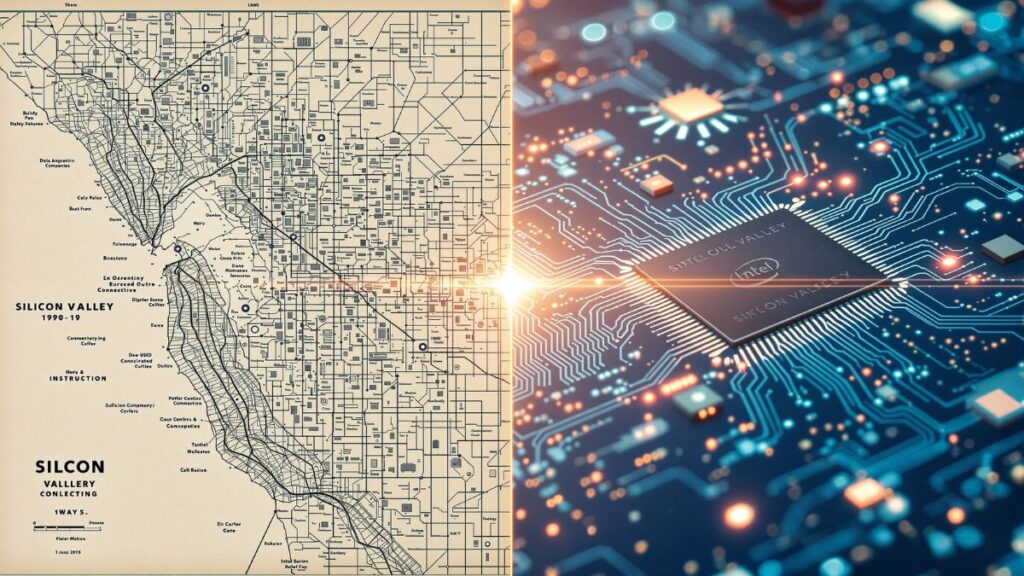This is what occurred to me given the latest news that Intel had notified China long before they notified the US Government about a series of very critical security issues with Intel’s processors. This came on top of the news that Intel’s CEO divested virtually every share he could while still remaining CEO between the time Intel knew of the problem and when they disclosed, that the initial patches released caused Intel-based systems to crash, and that Linus Torvalds had become outspoken about Intel’s efforts being “garbage”.
Intel is massively dominant in their segment which makes being caught by a competitor that is not disrupting the market—like what Apple has repeatedly done with products like the iPod, iPhone, and iPad—impossible. But, if the dominant vendor crashes and burns—much like IBM did in the 1980s—then catching the firm is not that hard because the lead firm is effectively going backwards.
Could trust, therefore, be the vector that AMD successfully uses to overcome Intel’s dominance?
The Importance of Trust
[pullquote]Companies often–as they become dominant—take this trust for granted and then bleed their customers until those customers do not trust anymore.[/pullquote]We do not live in the 1980s and 1990s anymore—where a processor problem not only has limited impact, but can be handled by a recall. Now we live in an era of smart cities, smart cars, and ever smarter hospitals. Increasingly our lives depend directly on the technology that runs these cities, cars, hospitals, and robots. None of us particularly want to live in a world showcased by the book Robopocalypse or the movie Terminator.We used to measure trust in companies and found that buyers avoided brands they did not trust like the plague. Companies often–as they become dominant—take this trust for granted and then bleed their customers until those customers do not trust anymore.
I went through this very painful process at IBM when IBM’s mistreatment of customers resulted in such a massive hit to their brand it went negative. That means, for a time, buyers would prefer unbranded, white box products over those that IBM built. And it was during this time that companies like Microsoft and Dell grew up to challenge and even surpass what had been the most storied and powerful technology company in the world.
Trust is critical to the brand and the long-term success of the firm and Intel has been bleeding trust badly of late.

Distrusted Future
This will be particularly problematic with the automotive and aeronautical markets that Intel hopes to penetrate. Should those systems fail or be hacked, lives will be lost and neither the car companies nor the regulators are likely to look kindly on a firm that cannot be trusted—particularly regarding security.
Brian Krzanich’s massive stock sale also creates the impression of a CEO looking out for their own benefit and ignoring the risks to his firm’s customers. Given the insider trading implications, most top executives are likely to look at this behavior as not only potentially illegal, but one that prioritized Krzanich’s wealth over the interests of Intel’s customers, or even the country the firm resides in.
Moving to let China know first was decidedly anti-American and that is extremely problematic given the US is focused like a laser on China as a primary advisory. And if that premature disclosure made it to North Korea, which is likely, you have foundation to argue treason.
None of that is good for Intel’s brand and does horrid things for trust, particularly with regulators.
Wrapping Up: AMD’s Opportunity
Intel as a company and through their CEO has done more damage to trust in the firm than I have ever actually seen done over this short a time. IBM’s fall took a decade to develop, Intel is well along the path to doing even worse in months. This creates an amazing opportunity for AMD.
AMD has always had the stronger reputation of taking care of customers and under their current CEO, Lisa Su—who came out of the crucible that IBM went through—that reputation has only been enhanced. For instance, the are currently building a custom graphics part for Intel and that part has received rave reviews even though Intel threw AMD under the bus during the initial CPU security release event.
Given Intel now looks like the company that would stab you in the back, AMD has an opportunity to differentiate as the company that has your back. And I doubt there is any buyer that would not prefer a firm that they trust over one that strained that trust beyond the breaking point.
If AMD can step up, they have an unrivaled ability to steal massive share from Intel because people do prefer buying from companies they trust, particularly over firms that have betrayed them. When things look really bad for Intel, they generally look really good for AMD.
- The Gerstner Legacy: How Marketing Saved IBM and Why Tech Keeps Forgetting It - January 2, 2026
- The Silicon Manhattan Project: China’s Atomic Gamble for AI Supremacy - December 28, 2025
- A Legacy of Defense: Why HP Stands Alone - December 19, 2025




Comments are closed.